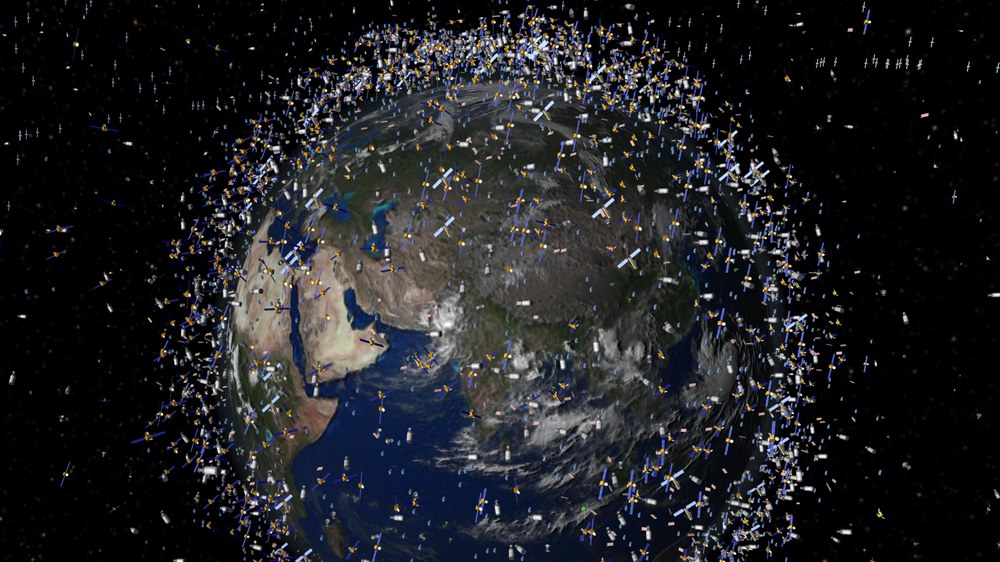DLR activities and participating institutes
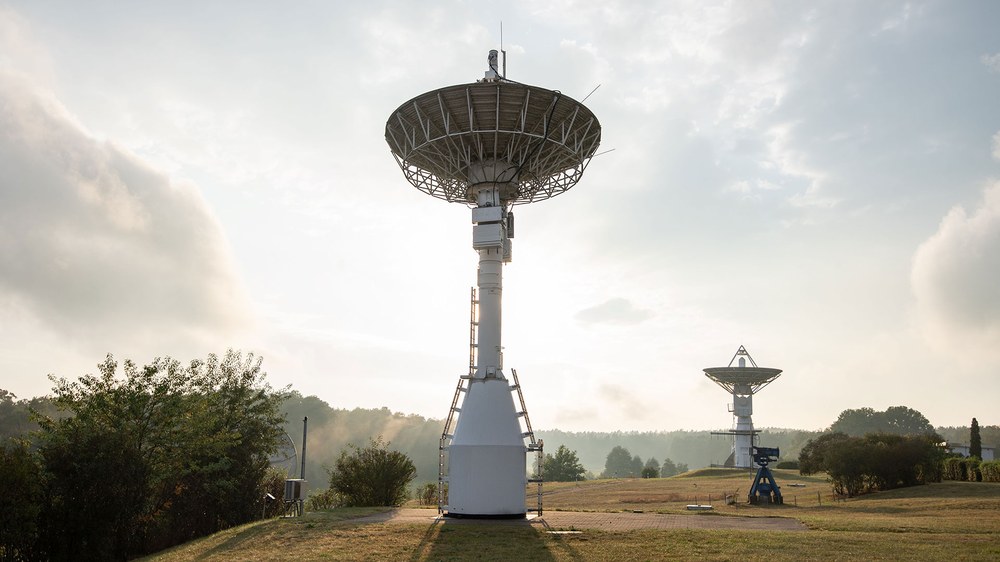
Space weather is the core focus at DLR's Institute for Solar-Terrestrial Physics in Neustrelitz. The institute works closely with numerous other DLR institutes, the European Space Agency (ESA) and other national and international organisations from research and industry. Some of the resulting projects are described below.
Greater sustainability in Earth orbit
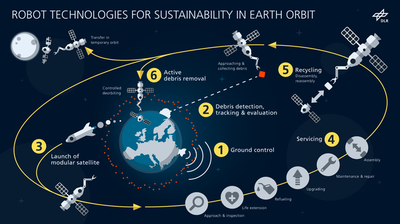
Satellite-based services are currently developing at a rapid pace. At the same time, the commercialisation and militarisation of low Earth orbit (LEO) is rapidly increasing. However, satellites are still not designed to be maintained or even repaired in orbit, and sustainability concepts for their design and operation are lacking.
Despite internationally recognised guidelines on space debris mitigation, as well as technical standards and national space regulations, the number of missions that successfully complete targeted disposal manoeuvres at the end of their operational life – known as end-of-life operations – remains well below the target set by these guidelines.
The DLR Orbital Sustainability project (Impulsprojekt Orbitale Nachhaltigkeit; ION) aims to increase sustainability in Earth orbit by extending the lifespan of satellites and ensuring they burn up in Earth's atmosphere at the end of their missions. This interdisciplinary project requires expertise including in satellite operations, robotics and automation, and space weather. Seven DLR institutes are involved in the project, which is led by the DLR Institute of Robotics and Mechatronics in Oberpfaffenhofen. Increased solar activity leads to higher temperatures in the upper atmosphere, causing it to expand and intensify air resistance in low Earth orbits (LEO). Space weather monitoring is therefore essential for estimating satellite lifespans and ensuring their timely and controlled decommissioning. This helps to prevent defunct satellites from becoming space debris and posing a threat to other objects or to space station crews.
Existing space debris is also affected by space weather. For this reason, targeted monitoring and quantitative predictions of the accumulation of space debris, as well as future clean-up missions, must take space weather into account.
Resilient Technologies for Disaster Protection (RESITEK)
Disasters such as floods, wildfires and hurricanes are becoming more frequent, not least due to climate change. Civil protection and disaster relief efforts rely on functioning communication networks and up-to-date data to assess the situation and protect the population. It is also essential that disaster areas remain accessible, even when infrastructure is destroyed, ensuring that relief supplies can be safely delivered.
The Resilient Technologies for Disaster Protection (RESITEK) project brings together DLR's expertise in aeronautics, space, energy, transport and security, with the aim of integrating technologies and services into a data visualisation system. This system seeks to provide constant situation monitoring as a basis for optimised situation assessment, as well as operational planning and implementation.
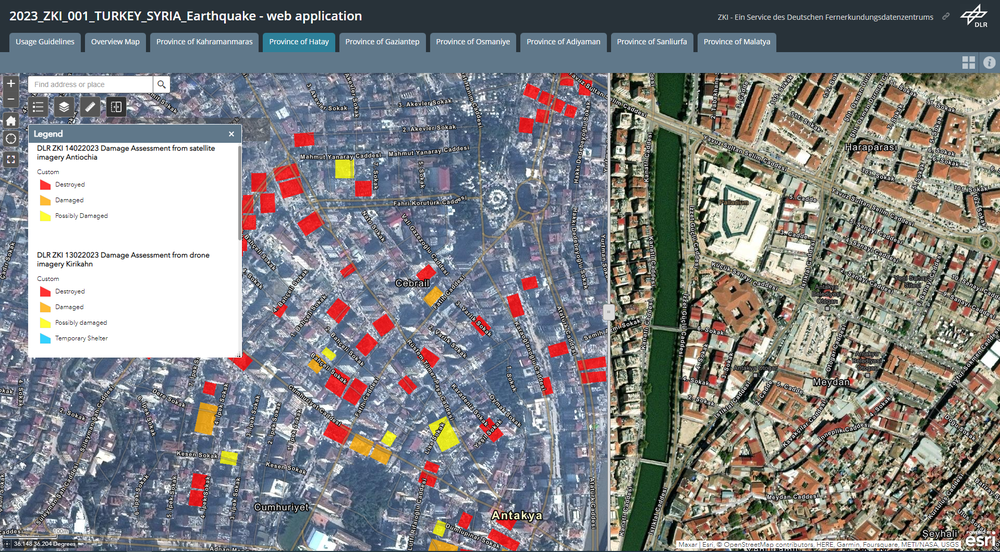
The RESITEK system is designed to collect and analyse all relevant data, allowing authorities and organisations to carry out relief operations as quickly and efficiently as possible in the event of a disaster. In a realistic scenario, participants will work together with authorities and other involved parties to demonstrate how the system's components interact with a wide variety of operational vehicles, including helicopters, drones and autonomous and non-autonomous vehicles.
Some 17 DLR institutes are involved in RESITEK, under the leadership of the DLR Institute of Flight Systems. The DLR Institute of Solar-Terrestrial Physics is responsible for monitoring space weather in order to ensure secure radio and satellite-based communication links in crisis-hit areas. The increasing importance of satellite-based communication and navigation for disaster relief also makes monitoring space weather essential.
National Space Weather Workshop
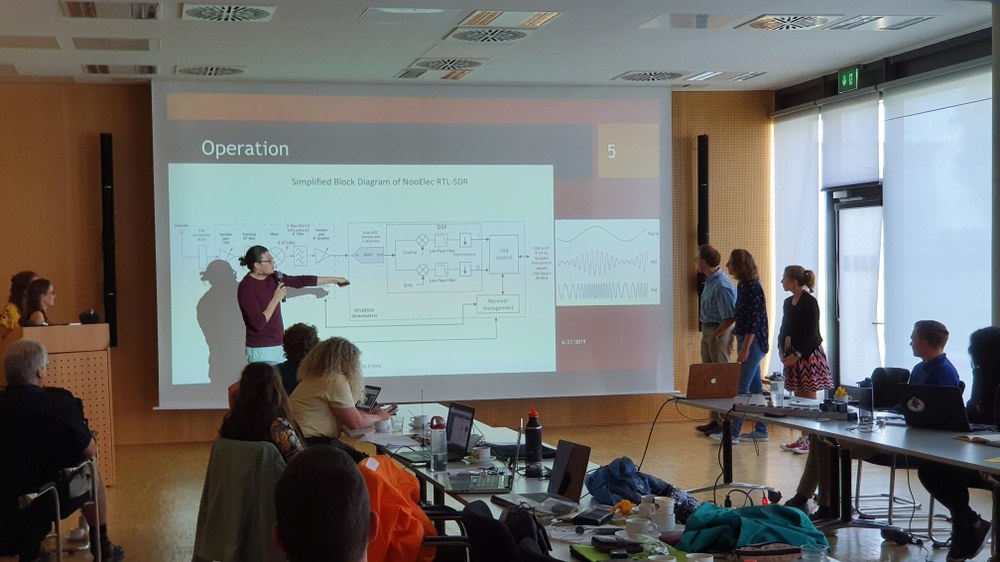
The DLR Institute of Solar-Terrestrial Physics plays a leading role in space weather research in Germany, including organising the National Space Weather Workshop. This event brings together the space weather community and last took place in September 2024 at the DLR site in Neustrelitz, with 80 scientists from over 20 research institutions, authorities and companies in attendance.
In addition to the Institute of Solar-Terrestrial Physics, the DLR Institutes of Space Medicine, Atmospheric Physics and the German Remote Sensing Data Center (DFD) were also involved. Representatives from private companies and government authorities, such as the Bundeswehr Space Command, also participated in the 6th Space Weather Workshop. The programme featured presentations ranging from basic space weather research to industrial and operational applications.

